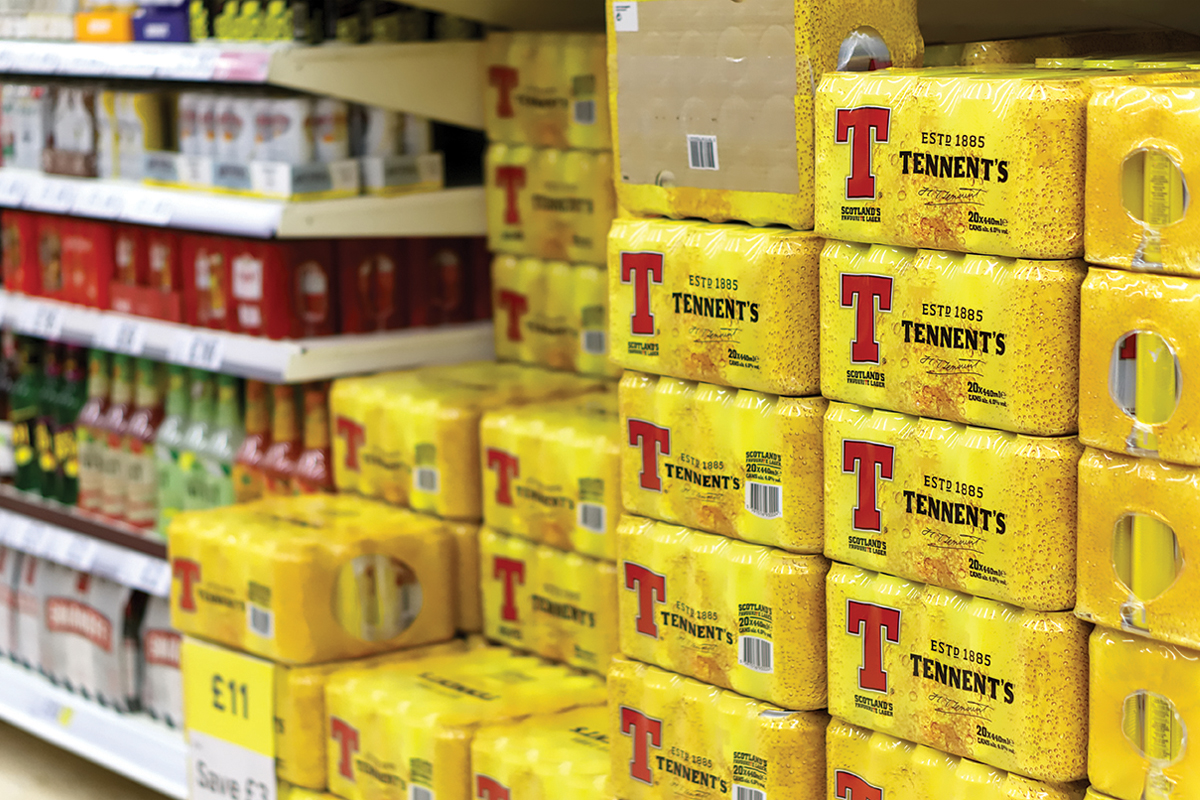Pressure from the health lobby will undoubtedly lead to lift in MUP

By Jack Cummins
AFRESH minimum unit pricing (MUP) row erupted last month with the publication of Public Health Scotland’s final evaluation of the legislation – a synthesis of a series of reports published over the past few years.
According to the evaluation, the measure has brought reductions in deaths and hospital admissions directly caused by sustained, high levels of alcohol consumption.
There had been a 3 per cent overall reduction in alcohol consumption, an estimated 13.4 per cent cut in deaths and 4.1 per cent in hospital admissions – results, it is claimed, that would not have been achieved without MUP in place.
Unsurprisingly, the policy’s supporters have claimed success and, as expected, are calling for a hike in the minimum unit price.
But the critics slammed the evaluation as a ‘whitewash’, with Glasgow Conservative MSP Dr Sandesh Gulane calling on the UK Statistics Authority to launch a probe into the findings.
Gulane told the Authority that 32 of the 40 studies mentioned in the report don’t cite the health outcomes of MUP, and a further seven of the other eight studies into health outcomes reached negative or inconclusive verdicts.
Only a single study, he claimed, said deaths might have been averted.
Christopher Snowdon, head of lifestyle economics at the Institute of Economic Affairs and a long-term opponent of MUP, slammed the evaluation as a “whitewash”, pointing out that there had been no impact on A&E attendances or crime. More importantly, he pointed out that while MUP was supposed to reduce alcohol consumption among those drinking at harmful levels, that simply did not happen – adding that “alcohol-related deaths in Scotland are at their highest level in over a decade and remain much higher than in England”. (‘Alcohol-specific deaths’ in Scotland increased from 20.8 per 100,000 in 2018 to 22.4 per 100,000 in 2021.)
In fact, as I explained on this page last month, a study published in June by Science Direct suggested that “the lack of evidence for a decline in the prevalence of harmful drinking arising from MUP is contrary to model-based evidence that informed the introduction of the policy”.
Of course, MUP was ‘sold’ on the basis that it would address harmful drinking.
That objective is still set out on the Scottish Government’s website with this unambiguous statement that “minimum unit pricing is designed to impact most on harmful drinkers – those who regularly drink more than the lower risk drinking guidelines”.
We were also told that moderate drinkers would suffer little or no collateral damage.
That could well be set to change at a time of rampant inflation and huge pressures on household budgets.
Lobbyists have long been calling for a rise in the unit price from the present 50p.
Adjusted for inflation, the figure would be around 62p.
A government consultation with the industry sets out a number of options: 60p, 70p, 80p, or more than 80p.
At 80p, a six-pack of Tennent’s Lager (500ml) would cost at least £9.60, while a 70cl bottle of whisky would rocket from the current minimum price of £14.00 to £22.40.
Prior to the introduction of MUP supermarket budget brand whisky was on sale at around £11.25.
A bottle of wine (75cl) with an ABV of 12.5 per cent could cost no less that £7.50 (presently £4.79).
As readers will no doubt recall, when MUP came into operation in May 2018, tabloid newspapers reported that Scots were flocking to the north of England to beat the price increases, packing vans with vast quantities of beers and ciders.
In reality, there’s no doubt that these ‘booze cruises’ produced little cost-saving benefits – but substantial price hikes may well see a boom in internet orders – because, of course, alcohol sold by English retailers and dispatched from south of the border are outwith the reach of the Scottish legislation.
























